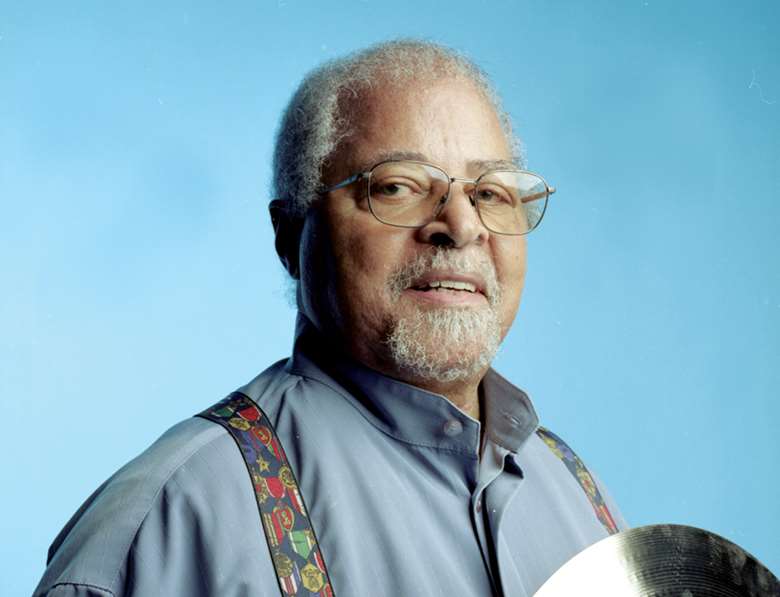Jimmy Cobb 20/01/29 -24/05/20
Kevin Le Gendre
Tuesday, May 26, 2020
Kevin Le Gendre remembers the iconic Kind Of Blue drummer’s vast contribution to jazz across two centuries

The list of veterans who have fallen eternally silent in the age of covid-19 continues to grow tragically long. Following the loss of Lee Konitz, Manu Dibango and Henry Grimes among others, Jimmy Cobb becomes the latest legend to pass.
He was 91. If McCoy Tyner, who died in March, was the sole survivor of the epochal John Coltrane quartet then drummer Cobb was the last man standing from Miles Davis’ revered Kind Of Blue band of 1959. Stanley Nelson’s 2019 documentary on the trumpeter, Birth Of The Cool featured many memorable contributions, notably that of his wife Frances, but there was a particular resonance to Cobb’s recollections of the hours in the studio that yielded one of the greatest albums of all time, genre notwithstanding. He did not overstate his own input yet it was absolutely indispensable. That hallowed music is hard to imagine without his artful blend of restraint and drive, the measured push of his snare and sensual flicker of his cymbals. At the time of recording Cobb thought that it was ‘just another good Miles Davis album.’ If only he knew.
He was offered the gig with Davis when Philly Joe Jones went missing, and Cobb recalls that the trumpeter was blunt about the proposition, telling him to be in Boston in 24 hours when Cobb was some 400 miles away in New York. He managed to make it, but then again he had been a resourceful and versatile sideman for years.
Born in Washington D.C, Cobb made his debut with visiting artists such as Charlie Rouse and Billie Holiday in the ‘40s before playing with two greats who straddled R&B and jazz, Earl Bostic and Dinah Washington, who he also married.
In the mid 1950s he became part of the vibrant club scene on New York’s 52 street. Thereafter he accompanied a who’s who of post-bop, from Sonny Stitt and Wes Montgomery to Hank Jones and Stan Getz. Of no less importance is the fact that Cobb appeared on several notable albums other than Kind Of Blue. He graced Davis’ Sketches Of Spain and Someday My Prince Will Come, Cannonball Adderley’s Cannonball’s Sharpshooters, Paul Gonsalves’ Gettin Together and several John Coltrane albums, including Stardust, Bahia and Coltrane Jazz.
Such was his steady flow of work as a sideman that Cobb didn’t make his debut as leader until 1983 with So Nobody Else Can Hear, but he recorded regularly throughout the ‘90s and millennium. Cobb rightly ascended to the rank of elder statesman, and was in demand for workshops where he could pass on the benefit of his vast experience to younger players. Yet that supremely subtle, potent dynamism on the drums remained intact and one of the last great sessions on which he appeared, Geri Allen’s 2006 cd Timeless Portraits And Dreams, is testimony to his brilliance.